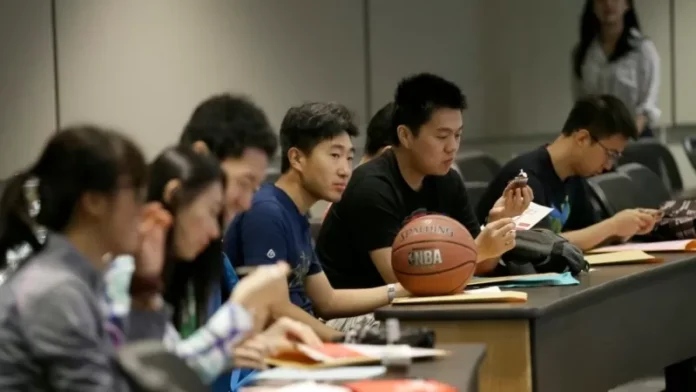Congressman Riley Moore recently wrote an op-ed urging the administration to take action in preventing the Chinese Communist Party (CCP) from using U.S. academic institutions as platforms for espionage. In his article, Moore proposed a ban on all student visas for Chinese nationals, citing the numerous cases of espionage involving Chinese students in the U.S. However, experts have suggested that a more effective approach would be to close the CCP-sponsored Chinese students and scholars’ associations on U.S. campuses.
The issue of Chinese espionage in U.S. academic institutions has been a growing concern in recent years. According to a report by the U.S. Department of Justice, there has been a significant increase in the number of cases involving Chinese nationals attempting to steal sensitive information from American universities. These cases have raised questions about the potential threat posed by Chinese students and scholars on U.S. campuses.
In his op-ed, Congressman Moore highlighted the need for stricter measures to prevent the CCP from using U.S. academic institutions as a means of espionage. He argued that banning all student visas for Chinese nationals would be a necessary step in protecting national security. However, experts have pointed out that such a blanket ban would not only be impractical but also counterproductive.
Closing the door to all Chinese students would not only harm the academic and cultural exchange between the two countries but also have a negative impact on the U.S. economy. Chinese students contribute billions of dollars to the U.S. economy through tuition fees and living expenses. Moreover, many of these students go on to become valuable contributors to the American workforce, bringing in diverse perspectives and skills.
Instead of a blanket ban, experts have suggested a more targeted approach that would address the root of the problem – the CCP-sponsored Chinese students and scholars’ associations on U.S. campuses. These associations, which are often funded and controlled by the Chinese government, have been accused of promoting propaganda and monitoring the activities of Chinese students in the U.S.
Closing these associations would not only limit the CCP’s influence on U.S. campuses but also send a strong message that the U.S. will not tolerate any form of espionage or interference in its academic institutions. It would also create a safer environment for Chinese students who may feel pressured to participate in activities that go against their values and beliefs.
Furthermore, experts have suggested that universities should also strengthen their screening processes for Chinese students and scholars, particularly those in sensitive fields such as science and technology. This would help prevent individuals with malicious intentions from entering the country under the guise of pursuing education.
In conclusion, while Congressman Moore’s proposal to ban all student visas for Chinese nationals may have good intentions, it is not a practical or effective solution. Instead, a more targeted approach that addresses the root of the problem – the CCP-sponsored Chinese students and scholars’ associations – would be a more viable solution. By taking these measures, the U.S. can protect its national security while still maintaining its strong ties with China and promoting academic and cultural exchange.

